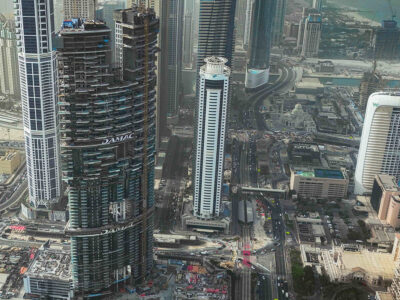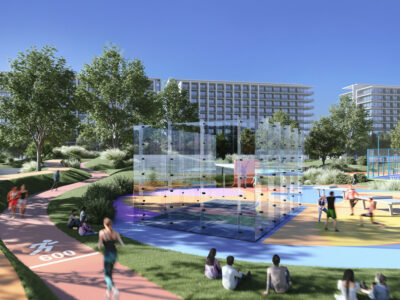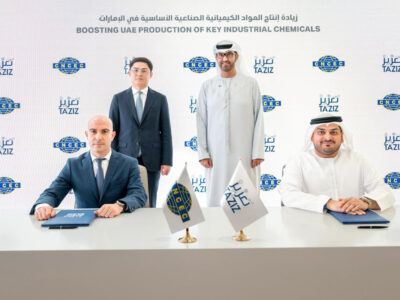Dubai will not have to depend on global financial markets to fund large-scale projects announced within the last few weeks as it has access to sufficient funding from within the UAE, the head of Dubai Economic Council told reporters on Wednesday.
Dubai’s ruler, Sheikh Mohammed bin Rashid Al Maktoum, unveiled plans last week for Emaar Properties and conglomerate Dubai Holding to build Mohammed Bin Rashid City, a complex consisting of 100 hotels, the world’s biggest shopping mall and a Universal Studios theme park.
This was followed on Monday by an announcement that Dubai planned to build an AED10bn (US$2.7bn) complex of five theme parks.
Despite a number of high-profile developments remaining unfinished in the wake of the economic downturn in 2008, Hani Al Hamli, secretary general of Dubai Economic Council, said Dubai had access to funding to finance these new projects.
“We do have our own resources and way to finance… We are sure that these projects will be achieved,” he said.
When pushed on where these funds would come from, Al Hamli did not go into specifics, commenting that financing would occur via sources within the UAE.
“We have our own resources in the emirates. I don’t want to disclose… This is managed by the finance department.
“When it comes to resources, we are part of the UAE and we have our own networks… There [are] neighbours who have massive natural resources. At the end of the day, [in] the UAE there is solidarity and a good governance and leadership,” he said.
In contrast to its oil-rich neighbour Abu Dhabi, Dubai’s government does not have the large fiscal reserves needed to finance large-scale projects.
During the downturn, when the Dubai real estate bubble burst and prices slumped around 60 percent and development finance dried up, Dubai was forced to take a last-minute US$10bn bailout from Abu Dhabi to avoid a bond default at a state-linked developer.
“Abu Dhabi or some of its companies may be part of this mega development,” an Abu Dhabi government official, who did not wish to be identified, told Reuters. “It is early days, let’s wait for the devil in the details.”
The recent large-scale government announcements close a year in which a number of prominent projects were unveiled, including the AED1.5bn (US$408m) Business Bay Canal project, the Dubai Modern Art Museum and Opera House District and the refurbishment of the Port Rashid terminal into an attraction centred around the QE2 ocean liner.
Many of these plans are projected to move forward straight away, but come in the midst of reports from the International Monetary Fund (IMF) which estimate that Dubai’s government-linked entities will need to repay about US$9.4bn of maturing bonds and syndicated loans in 2013 and US$31bn – much of it loans that were extended during the crisis – in 2014.
Looking at the opportunities outside the UAE, World Bank economists speaking on Wednesday had mixed feelings about how the current global crises in the eurozone and the US will impact the potential for the UAE to source financing overseas.
“The world economy is very weak and you have to look at it in the proper context. You have the crisis in Europe and the risk of a fiscal cliff in the US, so there are uncertainties. If the US goes into recession it will impact the global economy in a very significant way,” Ndiame Diop, a lead economist at the World Bank, told reporters.
When asked whether this would impact Dubai’s ability to get financing internationally, he answered “absolutely”.
Farrukh Iqbal, director of the Middle East and North African region at the World Bank, was more upbeat: “Yes, there was a stumble but a recovery is happening and a few lessons have been learnt…keeping more control on what kinds of projects can be supported and how much bank lending there should be.
“In general, global liquidity seems to be in a reasonable position. The banks have a lot of money. They have become conservative because of their experiences, and that is fine too… They will all have to take each individual project and look at it carefully and look at the overall balance of the risk-and-reward situation and make decisions,” he added.
Al Hamli said he was confident “the people in charge from the two big developers, Emaar and Dubai Holding, they have a clear agenda on that.
“Otherwise, don’t announce if you don’t have anything… With companies related to the government, I am sure there is a way of funding at a good interest rate and maturity,” he concluded.







